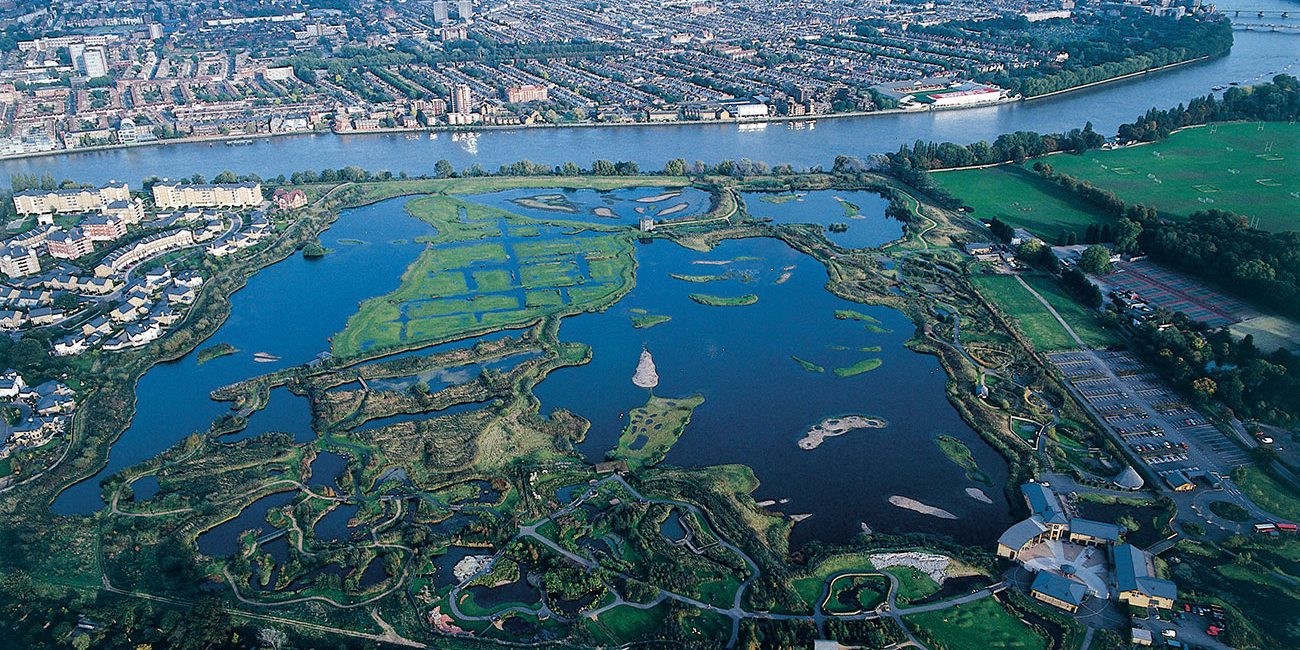The United States has a vast amount of territory containing all kinds of natural environments. Many of these places perform crucial roles in the functioning of a healthy ecosystem. In addition, many lie very close to human activity, and may even hamper the development of local infrastructure and business. Perhaps the utmost example of this dichotomy between conservation and human progress is the many wetlands of the United States.

Big Cypress National Preserve. Image Source.
A wetland is any land that is covered by any type of water for all or some of the time. By definition, this categorization covers a lot of scenarios. For example, swamps, floodplains, mangroves, and marshes are all considered wetlands. These areas tend to be highly productive for both the natural world and for human society. Many animals live in wetlands or use them as breeding grounds and feeding areas. Plant life is also incredibly diverse. The multitude of ecosystem services provided by wetlands to humans include water filtration, flood control, storm buffering, recreation, and education.
Due to the diversity and importance of wetlands throughout the United States, they are a major target of conservation for researchers, private interest groups, and the U.S. government. The Clean Water Act forms the primary means of enforcement for the government. Multiple major governmental organizations work together to protect wetland areas, including the Environmental Protection Agency (EPA), the U.S. Fish and Wildlife Service (FWS), the National Oceanic and Atmospheric Association (NOAA), the U.S. Department of Agriculture (USDA), and others. Each branch of the government related to wetland conservation follows a wide array of specific standards, protocols, and assessments to track, conserve, and restore wetlands. For example, a part of the USDA publishes the National Resources Inventory, which statistically analyzes land use and natural resources, including wetlands, within the United States.

Wetlands and developers strike an uneasy balance. Image Source.
With so many areas protected, wetlands can easily block industries and developers hoping to use the land. Land developers can, and may be required to, obtain permits in order to use protected land, but these applications pose their own obstacles. They can be very expensive and complicated depending on the extent of wetlands in the area and what rules apply to that specific place. Furthermore, the end result of the process may be that the developer has no ability to alter the land in a desirable way. Due to these rules and regulations, some businesspeople and pro-business politicians tend to disfavor the protection of wetlands in support of industry.
While the value of wetlands and their ecosystem services are undeniable, the need for land development and infrastructure can be important as well. The tension between environmentally-focused and business-focused individuals will only intensify as the United States seeks to address the often opposing goals of combating climate change and rebuilding the economy.
Cover Image Source.

msk5567 February 4, 2021
I like how you factored in viewpoints from both sides of this issue – the environmental preservation, as well as industrialization. Wetlands are quite important and contain unique ecosystems and promote biodiversity, as well as help maintain environmental stability. While industrialization is important, I personally think that finding alternate solutions for this, rather than building on the wetlands, may be more important. Raising such questions however was insightful and I enjoyed having a chance to consider more diverse perspectives on this issue!
rkg5404 February 4, 2021
I usually stay away from trying to understand the perspective of the economy or business, this is definitely a fault of mine, but this is because of a passion to protect our planet or the rights of humankind instead of the stocks or business opportunities. It is a very interesting perspective though. I find it so sad that entire ecosystems can simply vanish because of the need to build a building or business center but I guess that is part of improvement? I feel like there is a better middle ground than that.
anb6019 February 5, 2021
You intricately intertwined the two arguments of protecting swamps with each other to really hone in on how far environmental protection may go to prevent the advancement in civilization. I am a huge lover of the planet and anima, so it can be incredibly hard to consider the economic aspect of wildlife protection, as I tend to think that if people do not protect their planet or the planet will not be there much longer to perform work. Hopefully soon, an equilibrium can be found to protect the environment but progress land development, without either hindering each other much. Amazing writing here!
sqh5808 February 5, 2021
I feel like wetlands are such an underappreciated part of the environment. One Saturday this past October, I decided to take a walk through State College since it was a beautiful day. I came across a park-like area that turned out to be a locally protected wetland. I read informational signs along the walking trail and learned so much about the importance of keeping wetlands, even small ones, clean and healthy.